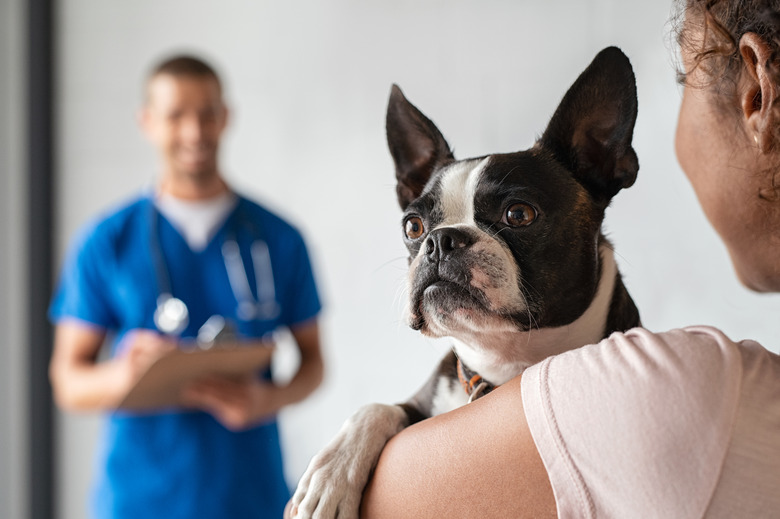Side Effects Of Cefpodoxime Proxetil For Dogs
Your veterinarian may prescribe cefpodoxime proxetil for dogs to treat bacterial infections such as skin infections, bladder infections, ear infections or abscesses. This oral antibiotic, which is sold under the brand names Simplicef and Vantin, is safe for your dog, although there are some rare side effects to watch out for.
Cefpodoxime proxetil uses
Cefpodoxime proxetil uses
Your vet may prescribe cefpodoxime to your dog for an ear infection, bladder infection or an infected wound. It is an especially popular option for skin infections. It is effective against many types of bacteria, including Staphylococci, which are challenging infections to treat because they create an enzyme that deactivates penicillin.
Cefpodoxime proxetil is available as a tablet or a liquid medication, both of which you can give your dog orally. Make sure you administer the entire prescribed amount of antibiotics, even if your dog seems to be feeling better, which usually occurs within one or two days of taking the medication. This will help ensure the infection is fully resolved and your dog makes a full recovery.
Store tablets in a dry location at a temperature between 68 and 77 degrees Fahrenheit. Avoid placing the bottle in direct sunlight. The liquid form of the antibiotic should be stored in the refrigerator. Keep it away from your pets and children as an overdose of the medication is possible.
Cefpodoxime for dogs side effects
Cefpodoxime for dogs side effects
Cefpodoxime proxetil for dogs has very few, minor side effects. Side effects include vomiting, which only about two percent of dogs experience, and diarrhea and loss of appetite, which only about one percent of dogs experience. The medication is equally effective whether given with food or on an empty stomach, so if your dog does experience gastrointestinal side effects, giving it with food may help your dog.
In rare cases, some dogs may experience an allergic reaction to the drug. Symptoms of an allergic reaction include a rash, fever, pale gums and difficulty breathing. An overdose can also cause severe vomiting as well as diarrhea, lethargy and decreased appetite. Complications, such as anemia and kidney damage, may also occur from an overdose of the medication. Do not give your dog a double dose if you miss one.
If side effects are severe or worsen, or if you suspect an allergic reaction or overdose, be sure to contact your veterinarian immediately as it can be an emergency situation. Other resources if you suspect one of your pets has overdosed on the medication include the Pet Poison Helpline and the ASPCA's Animal Poison Control Center.
Contraindications and other considerations
Contraindications and other considerations
Cefpodoxime proxetil is safe for puppies who are at least 18 days old. Its safety for dogs who are pregnant or nursing has not been determined, so be sure to tell your veterinarian if you are breeding your dog or if she is already pregnant or is currently nursing puppies. If you have a cat in the household and she gets into this medication, watch for serious side effects including a complete lack of appetite, which can lead to severe liver problems.
This antibiotic should not be given to dogs known to be allergic to other cephalosporins or penicillin. Use caution when giving to dogs that have seizures or kidney problems. Antacid medications and any other drug that decreases acidity in the stomach will prevent the full absorption of cefpodoxime and may cause it to be less effective.
Taking this antibiotic may interfere with the results of other diagnostic tests. It may cause a false positive reading on urine dipsticks for glucose as well as on nitroprusside tests to detect ketones in the urine. It may also cause a positive result on a direct Coombs test, which detects antibodies that attack red blood cells.
Always check with your veterinarian before changing your pet's diet, medication, or physical activity routines. This information is not a substitute for a vet's opinion.

